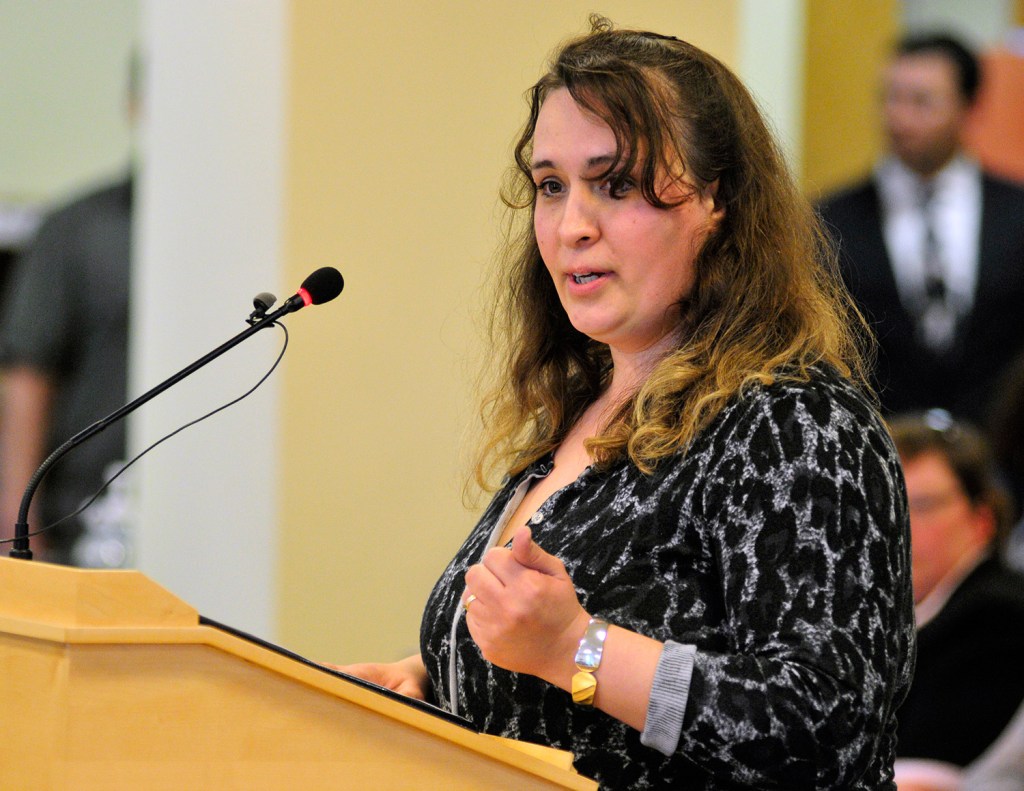BANGOR — Being a legislator is tough, especially when the agendas of the various players are as polarized as they are now. I understand that, but I am deeply disappointed by the recently approved compromise on changes to Section 17 mental health services. Allowing 30 more days to implement a bad idea doesn’t make that idea any better, and I don’t see any way to reverse these changes if they prove problematic.
The Department of Health and Human Services has repeatedly said that these changes are not fiscally motivated. But they’ve made a point of noting the $8.8 million spent on these services last year, failing to mention that this represents about .002 percent of overall yearly Medicaid spending.
The stated purpose of these changes, according to David Sorensen, a senior policy adviser to Gov. LePage, is to “ensure the right services are going to the right people.”
The DHHS says that these services – case management and living skills – are meant for people with “serious, persistent mental illness” (defined as schizophrenia or schizoaffective disorder) but are being provided to people with “mild and moderate” mental illnesses (such as bipolar disorder, depression, post-traumatic stress disorder and major anxiety). However, there’s no clinical evidence that any one of the major diagnoses is more or less severe than any other.
The DHHS testified that they consulted “lots of clinicians” but specifically mentioned only one, describing her as a clinician from Dorothea Dix Psychiatric Center. While unquestionably capable, she doesn’t run a community-based mental health agency. Hence, asking her to write rules for community-based services is like asking a cardiologist about ulcers: He or she may have an academic familiarity with the subject, but it isn’t really his or her scope of practice.
Sorensen alleges that providing Section 17 services to people with “less-severe” diagnoses, such as bipolar disorder, depression and the like, “actually fosters … dependence” on the service. He describes my job, case management, as “visiting members’ homes to ensure they are able to dress, eat, clean and perform the most basic functions of daily life.” This would indeed be an unnecessary service for anyone not severely impaired – if this were an even remotely accurate depiction of case management.
Case management is a proactive service that starts by going to the client, no matter where they are located, be that a homeless shelter, home or tent in the woods. We listen to and help the client define needs, then assist him or her in gaining stabilization by accessing basic necessities like housing, food, mental and physical health care and legal services. We help the client navigate the ever-more-complex process of accessing these services, while managing anxiety and other mental health symptoms.
Far from enabling dependence, we teach skills to foster independence, such as effective communication, problem solving and organization. We do, yes, monitor our clients, but when we check on self-care or eating habits, we are assessing for decompensation and risk for suicide. When we check the cleanliness of a client’s apartment, we are determining their potential risk for eviction. In short: We try to head off problems before they happen.
Neither Section 65 therapy and medication management, nor the Section 92 behavioral health homes services that the DHHS claims are “more appropriate,” approach clients just this way – a way that has been proven to work. While Section 92 services are similar, they are funded in such a way as to provide limited amount of service a month. This will especially put the northern counties, perpetually neglected in service provision, at a disadvantage. Driving time alone will make it unattractive to provide Section 92 services in these areas.
Since 2007, the DHHS has required prior authorization before providing services. Case managers must submit detailed information every 90 days to the clinicians at a private company, APS Healthcare. The DHHS pays APS to ensure that only services that are clinically necessary are provided. The DHHS has made no statements that APS has not done its job properly, which brings into question the state agency’s recent assertions about the appropriateness of Section 17 services, as well as the need for any rule changes.
Over 300 Maine citizens recently gathered at the State House to protest the DHHS’ recent changes to Section 17 services. They testified for over seven hours, and I do commend the legislators on the Health and Human Services Committee for staying and being attentive.
Nevertheless, there were many recipients and former recipients of Section 17 who, despite visibly shaking from anxiety, were brave enough to testify April 1 and ask that these changes be stopped. I really wonder if they feel as positive about this compromise as legislators seem to. I also wonder if they even felt they were heard.
Send questions/comments to the editors.


